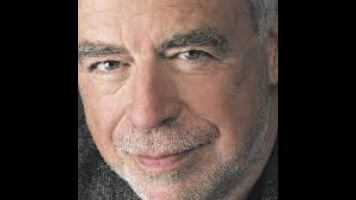“Sully, Sully, Sully,” mutters Carl Roebuck midway through Richard Russo’s 1993 book Nobody’s Fool. “You’re not an ’80s guy.”
Roebuck was right when he said that, in a book published some 23 years ago, but times are cyclical. A guy who doesn’t fit the ’80s may find himself imminently in tune with the 2010s. That’s the case with Donald “Sully” Sullivan, the protagonist of Nobody’s Fool, who returns just as rascally and crotchety as ever in the sequel Everybody’s Fool. The difference is that the times have caught up—or slowed down, as the case may be—to Sully, whose more rakish tendencies suddenly feel in sync with the broader culture. Either the town of North Bath, New York—still a struggling outpost, though one whose fortunes don’t feel quite as precarious as they did in its introductory book—is just more accepting of Sully’s quirks now that he’s an old man, or he’s rubbed off on everyone. The book’s title points to that being the case; North Bath feels like a town where foolishness would be contagious.
The title also indicates how Russo’s focus has broadened in his sequel. Where Nobody’s Fool never strayed too far from Sully, Everybody’s Fool demotes him to supporting player, to a disappointing degree for fans returning to Russo to get more of Sully. By far the most engaging sections of the sequel concern him; the other characters lack Sully’s vividness and energy, and just aren’t as compelling. (Most of the major players are carryovers from the first book.)
It’s not unheard of for literary authors to revisit their everyman characters—John Updike’s Rabbit Angstrom and Richard Ford’s Frank Bascombe come to mind—but typically it’s so they have a constant with which to evaluate changing times or the way people evolve with age. Neither applies here: Sully isn’t prominent enough to serve as a study of change or sameness (even in the face of a terminal diagnosis, revealed early on), and we don’t know enough about the characters who replaced him to gauge the distances they’ve traveled. Russo doesn’t seem to have much to say this time around, and his grasp on the material is so unsteady it calls into question why he decided to revisit these characters in the first place.
The sequel’s protagonist, to the extent it has one, is Doug Raymer, the town’s sad sack chief of police. (You may remember his character—then just a cop—from the film adaptation of Nobody’s Fool, played by Philip Seymour Hoffman opposite Paul Newman’s Sully.) Whereas Raymer was fairly nuanced before—an irritable but well-meaning fuck-up—Russo now paints him with broad strokes. It’s not enough that he makes a typo on his business cards (“I’m not happy until you’re not happy”), he also falls into an open grave and is struck by lightning—on the same day.
The book is filled with “bigger” moments like that, events that puncture Nobody’s steadfast commitment to narrative and psychological realism. Everybody’s Fool is bizarrely lurid and broad, featuring outlandish events like an escaped venomous snake and brutal acts of violence (more or less taken in stride by the old-timers). If this still qualifies as a slice of life, it’s from a pie made by Guy Fieri.
Do these elements make for a bad book? Certainly Russo’s skills as a writer have not diminished; the book is filled with lovely passages and smart dialogue that provides thoughtful shading to both major and minor characters. The problem is that it can’t be viewed in a vacuum, and suffers in comparison to both the original and Russo’s overall body of work. The man won a Pulitzer (for Empire Falls), so some of his more curious choices deserve the benefit of the doubt, but even upon reflection there’s a lot here that doesn’t work. If this was a stand-alone work it might be easier to enjoy on its own merits, but he never justifies reviving his characters or the changes in tone he makes to their story. Comparing the quality and insight of the two books calls to mind a once-great TV show that’s now several seasons past its prime. The ingredients are the same, the basic competence is still there—but what had once been exciting and powerful is now a hollow exaggeration of its former self. This may only be Russo’s second journey to North Bath, but already it feels like he’s jumped the shark.

 Keep scrolling for more great stories.
Keep scrolling for more great stories.
